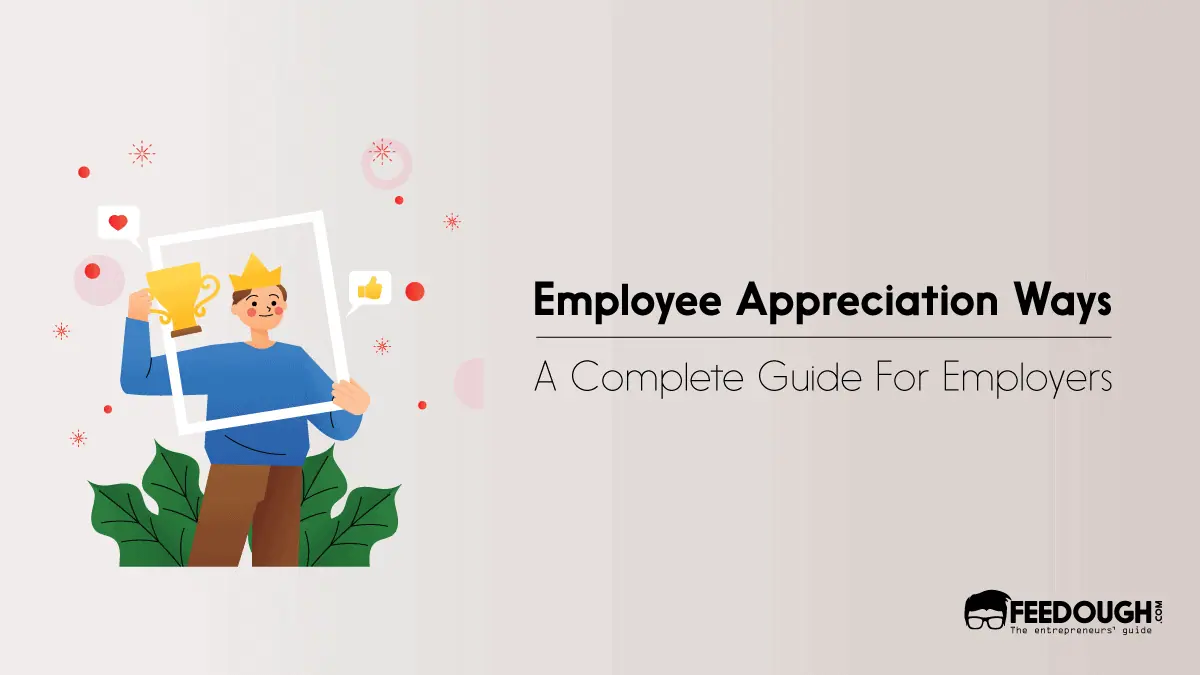Layoffs, non-recognition of hard work, and a downtrend in business all result in low employee morale, leading to low productivity and efficiency. In fact, in India, only 70% of employees are unhappy in the workplace.
If this doesn’t hit you as an employer, here are a few more statistics –
- Not feeling valued is the top reason for unhappiness, cited by 69% of unhappy employees
- 22% of dissatisfied workers cite lack of recognition as a key factor
- Employee happiness is down 5% year-over-year as of 2024
This calls for a major revamp in the way employee appreciation is shown. Simple “thank you”s and bonuses won’t do anymore. It’s time to get creative and show your employees that you truly value their hard work and dedication.
But for those who’re new to this, here’s what employee appreciation is and what it isn’t.
What Employee Appreciation is?
Employee appreciation is recognising and valuing the work your team does. It’s about showing genuine gratitude for their efforts and contributions.
It doesn’t have to be elaborate or expensive to matter.
At its core, employee appreciation is about making your employees feel seen and valued. It’s about building a positive work culture that encourages productivity, happiness, and loyalty.
It’s also consistent. Appreciation isn’t a once-a-year thing tied to holidays or special occasions. It’s an ongoing practice that helps build trust, boost morale, and create a workplace people actually want to be part of.
What Employee Appreciation is Not?
Employee appreciation isn’t just throwing money or perks at people. It isn’t a transactional activity.
It’s also not about treating everyone the same. Employee appreciation isn’t all about one-size-fits-all gifts or rewards. Each employee is unique and has different needs and motivations. Employee appreciation involves understanding and catering to those individual needs while ensuring fairness and equity.
Now that we’ve clarified what employee appreciation is and isn’t, let’s dive into some creative ways to show it.
Creative Ways to Show Employee Appreciation
Employee appreciation isn’t always a bigger paycheck or a corner office. It is sometimes “Hey everyone, let’s just take the day off!” or “Jack, the team and I wanted to show our appreciation for your hard work, so we got you tickets to your favourite band’s concert this weekend.”
Here are some unique and creative ideas for showing employee appreciation that will make your team feel valued and motivated.
Personalised Recognition
Probably the biggest employee appreciation myth is that everyone wants a plaque or certificate with their name on it. While some people might appreciate this, others would prefer something more personalised and meaningful.
Consider recognising your employees in ways that are specific to them. It could be –
- Spot awards: These are spontaneous recognition awards given to employees for going above and beyond their duties. Keep a few gift cards or vouchers handy and give them out on the spot when you catch someone doing an exceptional job.
- Recognition walls: Personalised recognition can also take the form of a bulletin board or an online platform where you can share employee achievements and milestones. This could include work-related accomplishments, personal milestones like birthdays and anniversaries, etc.
- Personalised appreciation gifts: These could be anything from a customised coffee mug or t-shirt to a handwritten thank-you note. The key is to make it personal and thoughtful.
When you gift a skincare addict a fancy skincare set or movie tickets to a film buff, you’re showing them that you truly care about their interests and passions.
Handwritten Thank You Notes
While many would argue that emails and texts are more efficient, nothing beats the personal touch of a handwritten note. Take some time to write a heartfelt thank you note to your employees, thanking them for their hard work and dedication.
Be specific about what they did and how it made a difference. This will make them feel appreciated and valued as individuals rather than just another employee.
You can even use AI like ChatGPT to help you come up with personalised messages if you’re short on ideas (but don’t let your employees know that).
Flexible Time Off
Almost none of the employees would say no to an extra day off or even just a few hours to themselves. Giving your employees the flexibility to take time off when they need it is a great way to show that you value their mental and physical well-being.
Let them attend their child’s school event, go for a doctor’s appointment, or simply take a personal day without having to worry about work commitments.
Also, ensure that you mention that they don’t have to make up for the hours missed. This will make your employees feel seen and trusted.
This will also reduce burnout and stress levels, leading to better productivity and overall happiness in the workplace.
Wellness Initiatives
When you ensure the well-being of your employees, you’re showing them that you value them as people and not just workers.
Consider implementing wellness initiatives that promote mental and physical health in the workplace. This could include yoga sessions, meditation classes, healthy snack options, or even a company-sponsored gym membership.
You could also encourage your employees to take regular breaks and practice self-care by providing resources like mindfulness apps or self-help books.
Investing in employee wellness shows that you care about their overall happiness and not just their performance at work. It will lead to increased loyalty and satisfaction among your team members.
Create a Culture of Peer-to-Peer Recognition
Peer to peer recognition refers to recognising and appreciating your colleagues’ contributions. For example, an employee could mention another team member’s exceptional performance during a meeting or share a positive customer review they received.
Creating a culture of peer-to-peer recognition encourages teamwork and fosters a sense of community within the workplace. It also allows employees to feel appreciated by their peers, which can be just as meaningful as receiving recognition from superiors.
You could even host regular team events or activities where team members can appreciate and celebrate each other’s achievements. This will strengthen relationships and improve overall morale in the workplace.
Public Recognition
Employees love it when their efforts are acknowledged and appreciated in front of their peers or better – the world. This could be through a company-wide email, social media post, or even during a team meeting.
Public recognition not only boosts an employee’s self-esteem but also highlights their hard work and dedication to the entire company. It can also serve as positive reinforcement for other employees to strive towards excellence.
However, make sure to balance public recognition with personalised appreciation as well. Some employees may not be comfortable with public praise and might prefer more private forms of recognition.
But if you do plan to give public recognition, plan it out well. Ensure that it is sincere, specific, and inclusive to avoid any potential issues or conflicts.
For example, even a simple random LinkedIn recommendation, a LinkedIn post or even a post on your company’s Instagram account can go a long way in showing appreciation and recognition for your employees.
Professional Development Opportunities
Employees don’t just desire money whenthey look for a job or appreciation in their current job. They also want to grow and advance in their careers.
Offering professional development opportunities such as workshops, conferences, or courses shows that you are invested in your employees’ growth and success. It also allows them to gain new skills and knowledge that they can bring back to the company.
Also, don’t keep it random. Ensure, you provide the required professional development opportunity to the exact employee who needs it. For example, a course in leadership may be beneficial for an employee aiming for a managerial position, while a social media marketing workshop would benefit someone in the marketing department.
A sabbatical to go for a course in another city or country, while sounds like an expensive affair, can be worked out within budgets and provides a great opportunity for professional and personal growth, amplifying the employee experience.
Celebratory Team Outings
A simple team outing to celebrate small wins or just to clear the mind can go a long way in boosting team morale. These outings don’t have to be grand or expensive, even a lunch or happy hour can do the trick.
It allows employees to bond with their colleagues outside of work and create stronger relationships. It also promotes a positive work culture and shows that you value your employees’ well-being.
You could also use these outings as an opportunity to recognise and appreciate specific employees for their hard work and contributions. This will make them feel seen, valued, and motivated to continue performing at their best.
Care Packages for Remote Workers
Since remote work has become the norm for many companies, employee appreciation techniques have also upgraded to ensure remote workers feel valued and included.
One such technique is care packages. It includes sending small gifts or tokens of appreciation to remote workers’ homes. This not only shows that you are thinking of them but also helps them feel more connected to the company and their team.
Care packages can include anything from company merchandise, handwritten notes, gift cards, or even snacks and self-care items. It’s a simple yet effective way to show your remote employees that they are an important part of the team.
“Boss for a Day” Experience
One of the best and most rememberable employee appreciation ideas is allowing them to take on the role of “boss for a day.” This can include giving them an opportunity to make decisions, lead meetings, or even plan team activities.
Not only will this make the employee feel valued and empowered, but it also allows them to gain a new perspective and better understand their superiors’ role. It’s a win-win situation that promotes personal growth and strengthens the work relationship between employees and their superiors.
Here’s an example of how you can pull this off – let’s say ‘Dave’ has been working exceptionally well in the marketing department. You could give him an opportunity to lead a team meeting and share his ideas for the next marketing campaign. Not only will Dave feel appreciated, but it also allows him to showcase his skills and knowledge to the rest of the team.
However, ensure that this doesn’t sound like a punishment to the employee, but rather an exciting opportunity for them to take on new challenges and responsibilities.
Benefits of Employee Appreciation
No employer would deny the fact that employee appreciation is crucial for the success, growth, and overall happiness of their employees. But in case you still need some convincing, here are a few benefits of employee appreciation:
Enhanced Employee Morale and Happiness
Appreciating employees and recognising their hard work not only makes them feel valued but also boosts their morale and overall happiness. This, in turn, leads to increased productivity and better performance.
It’s so important that according to a survey, 22% of dissatisfied workers cite lack of recognition as a key factor. So recognition, appreciation, and a positive work culture can be the key to retaining happy and motivated employees.
Increased Engagement and Productivity
When employees feel appreciated and valued, they are more likely to be engaged in their work and give their best effort. This leads to increased productivity, better quality of work, and overall success for the company.
In fact, happy employees are 12% more productive on average than unhappy employees. So, investing in employee appreciation not only benefits the employees but also the company’s bottom line.
Reduced Turnover Rates
Turnover rate refers to the rate at which employees leave a company. High turnover rates can be costly for companies, both in terms of time and resources.
However, employees are likelier to stay loyal to the company when they feel appreciated and recognised. This reduces turnover rates and saves the company from the expenses of continuously hiring and training new employees.
Positive Work Culture
A work culture that promotes appreciation, recognition, and development opportunities is one that employees will want to be a part of. It creates a sense of community and belonging among employees, leading to a positive work environment.
This positive work culture also attracts top talent when it comes to recruiting new employees. People want to work for companies where their hard work is recognised; employee appreciation programs are an excellent way to showcase that.
According to a survey, 69% of employees would reject a job offer if they learned the company’s employees were generally unhappy.
Improved Team Dynamics
When there’s recognition, no matter how small, team dynamics improve significantly. Employees feel more connected and supportive of each other, leading to better collaboration and teamwork.
This benefits the company’s overall success and its employees’ individual growth. They learn from one another, share ideas, and build strong relationships that can last a lifetime.
A startup consultant, digital marketer, traveller, and philomath. Aashish has worked with over 20 startups and successfully helped them ideate, raise money, and succeed. When not working, he can be found hiking, camping, and stargazing.









